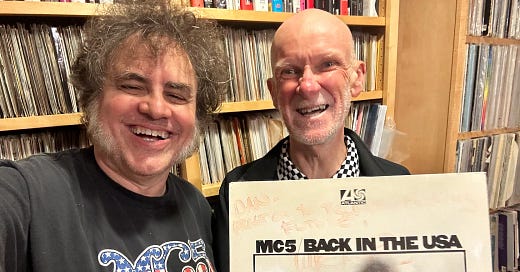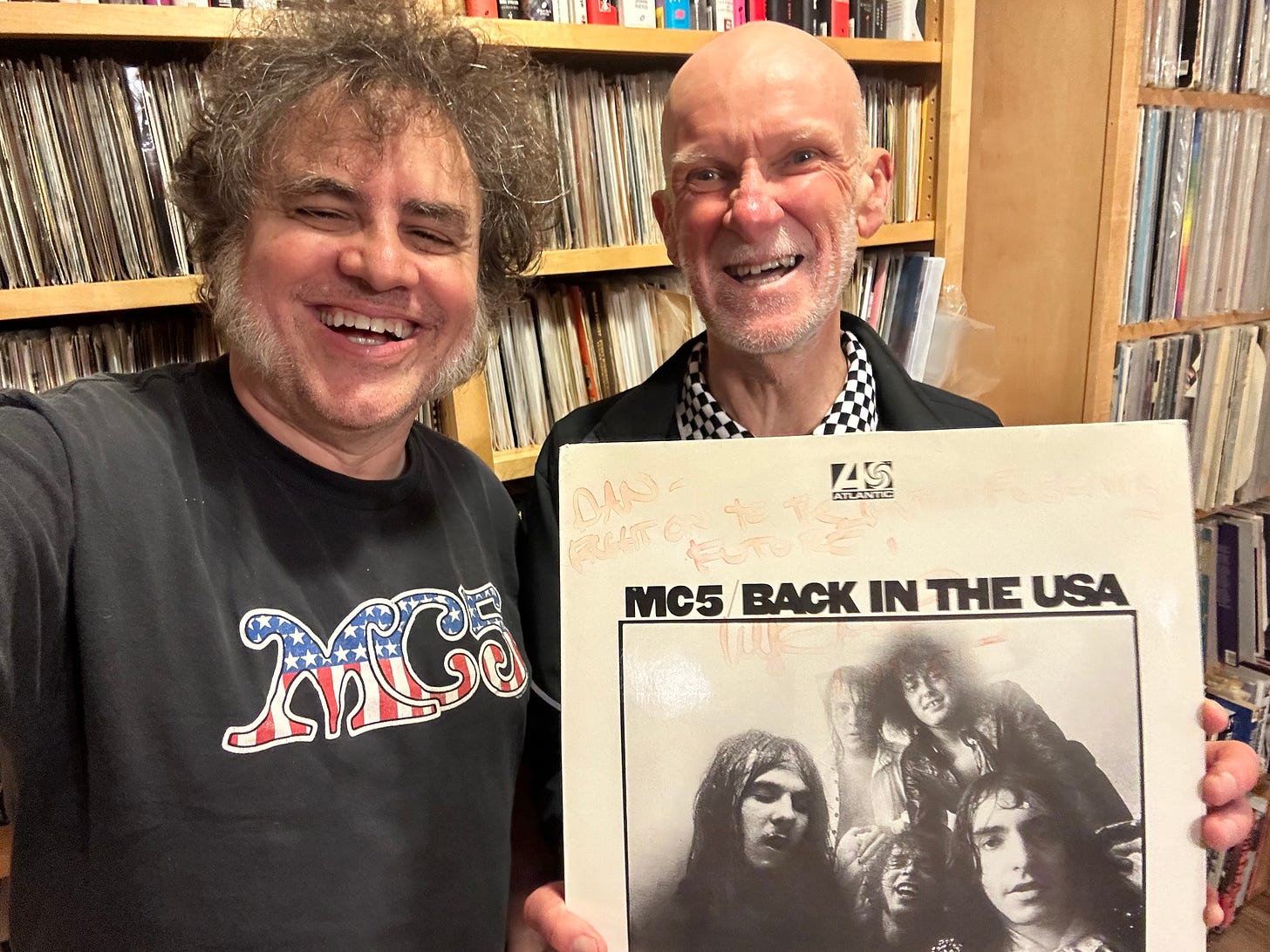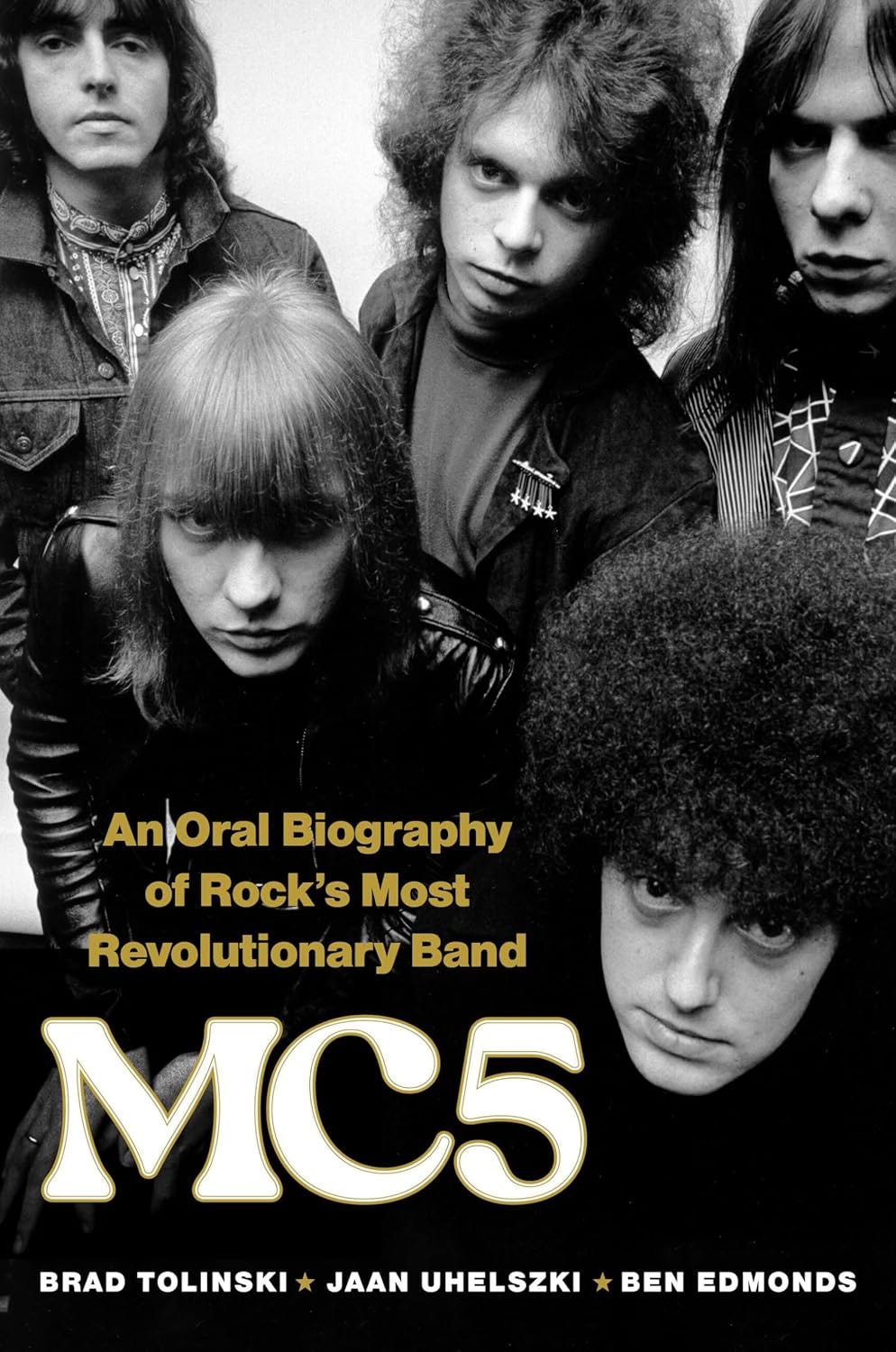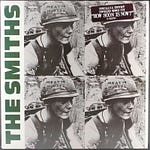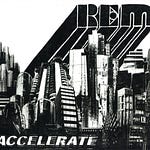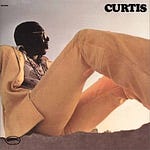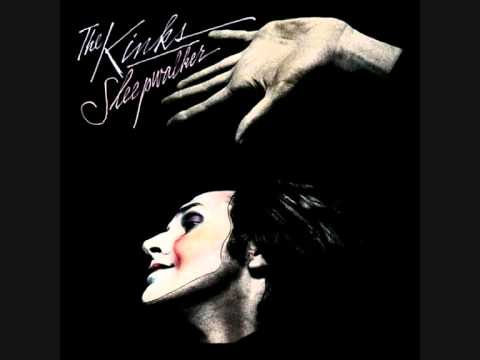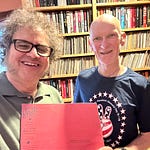Welcome to Episode 10 of the CROSSED CHANNELS podcast, in which music journalists/obsessives Dan Epstein (the Yank) and Tony Fletcher (the Brit) clash and connect over music from either side of the pond.
This time out, we taken on of the greatest rock n’ roll bands to ever demolish a stage: the MC5!
Formed in the mid-1960s in the suburbs of Detroit, Michigan, the band had a tough, R&B-influenced sound that was far more aggressive and confrontational than anything from the big East or West coast bands of the time; and by the autumn of 1968, their jaw-dropping live sets — as well as their reputation for counterculture activism, which was further amplified when they drove to Chicago that summer to play for the Democratic Convention protesters — were causing such a stir that Danny Fields flew out from L.A. and signed them to a deal with Elektra Records.
Unfortunately, the MC5 were just as talented at self-destruction as they were at kicking out the jams. As recounted in MC5: An Oral Biography of Rock's Most Revolutionary Band, the gripping new book from Brad Tolinski, Jaan Uhelski and Ben Edmonds, the band collapsed just over four years after signing that Elektra deal, thanks to in-fighting, drug addiction and several deeply ill-advised decisions — such as alienating Elektra by taking out a “Fuck Hudson’s” newspaper ad after the Detroit retail giant refused to stock their profanity-laced debut album.
The MC5 only made three albums before imploding in 1972: 1969’s live Kick Out the Jams, 1970’s Back in the USA, and 1971’s High Time. All three are brilliant in their own, very different ways; at the same time, there’s a lingering sense that none of them managed to fully capture everything that was great about the band.
In this episode of CROSSED CHANNELS, Tony and Dan discuss the most-maligned album of these three: Back in the USA, their Jon Landau-produced debut for Atlantic Records, which jettisoned the sweaty intensity, bludgeoning power chords and feedback-laced madness of Kick Out the Jams in favor of 11 straightforward, tightly-arranged rock n’ roll tracks. Though Back in the USA fared poorly upon release in the US (only making it to #191 on the Billboard 200), it would prove immensely influential — especially in the UK, where the album’s punchy sound and the band’s incendiary live performances (like the one below of ‘Looking At You’ from Back in the USA, which was filmed in Detroit just a month before the band made their first trip to England) made a lasting mark on a number of future British punk and pub rock luminaries, including Dr. Feelgood, The Damned and Generation X.
Was Back in the USA an unnecessarily radical over-correction, a botched opportunity courtesy of an inexperienced producer and a band whose previous studio excursions had been limited to a couple of independently recorded singles? Was it where the band’s collective songwriting ability really developed, and where the MC5 laid the sonic and lyrical templates for the punk explosion of 1977? Or was it all of the above? Tune in to the latest episode of CROSSED CHANNELS to find out what we think!
This podcast episode is only available in full to paid subscribers of Jagged Time Lapse and Tony Fletcher, Wordsmith, though a preview of the episode is available for all to listen to. Thanks as always to everyone who supports our Substacks — and this podcast — with your paid subscriptions.
As an added bonus for our US paid subscribers, we’re giving away a free copy of the aforementioned new MC5 biography, courtesy of Hachette Press.


